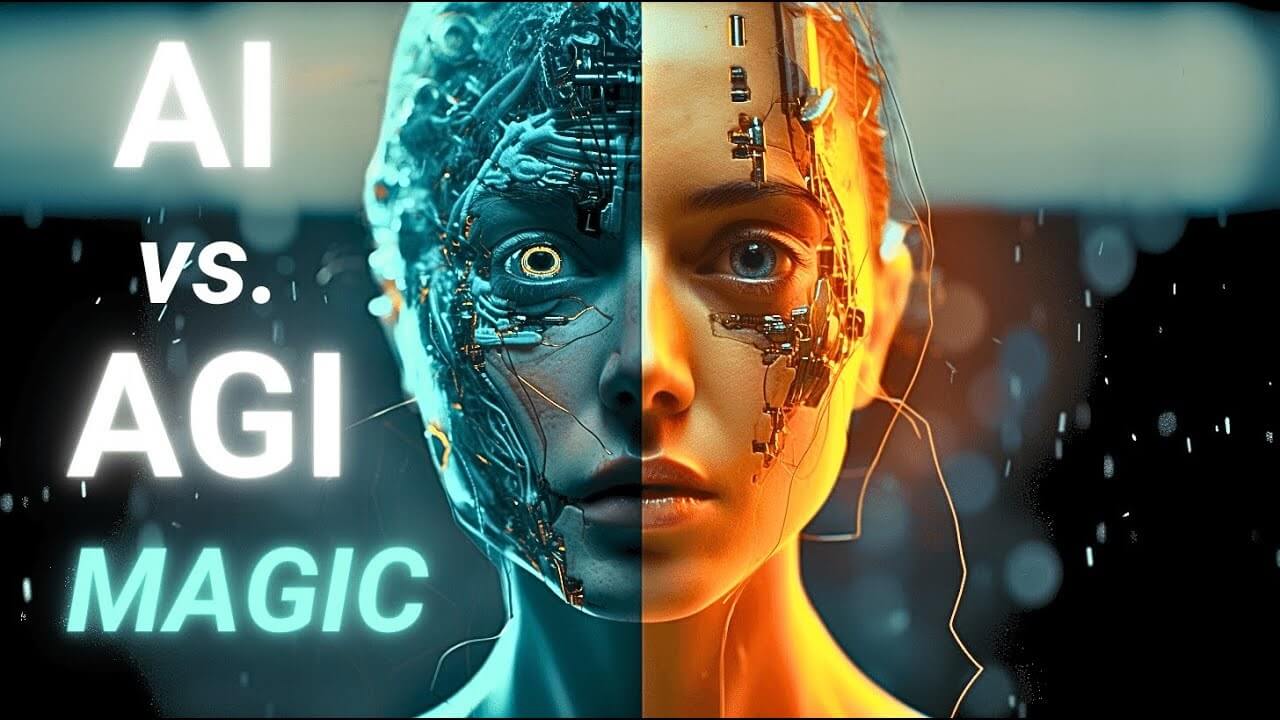AGI vs. AI: Navigating the Future of Intelligent Systems

In the realm of technology and innovation, people often use the terms “Artificial Intelligence” (AI) and “Artificial General Intelligence” (AGI) interchangeably. However, these terms represent distinct concepts with significant implications for the future of technology and humanity. In this article, we will discuss the basic difference between AI and AGI.
What is Artificial Intelligence (AI)?
Artificial Intelligence refers to the simulation of human intelligence processes by machines, particularly computer systems. These processes include learning, reasoning, problem-solving, perception, and language understanding. AI technologies perform tasks that typically require human intelligence, such as visual perception, speech recognition, decision-making, and language translation.
There are two primary types of AI: Narrow AI and General AI.
1. Narrow AI: Also known as Weak AI, Narrow AI perform a narrow task or a specific set of tasks. Examples of Narrow AI include virtual assistants like Siri, Alexa, and Google Assistant, as well as recommendation algorithms used by Netflix and Amazon.
2. General AI: General AI, also known as Strong AI or AGI, is an AI system with generalized intelligence and the ability to apply intelligence to any problem, rather than just one specific problem. AGI would have cognitive abilities that rival those of human beings, including the capacity for abstract reasoning, self-awareness, and learning.
What is Artificial General Intelligence (AGI)?
Artificial General Intelligence (AGI) refers to a hypothetical AI system that possesses the ability to understand, learn, and apply knowledge in a manner similar to human beings. AGI would be capable of performing any intellectual task that a human being can do, with the potential to surpass human intelligence in various domains.
AGI represents a significant leap beyond current AI capabilities. While Narrow AI systems excel at specific tasks, they lack the flexibility and adaptability of human intelligence. AGI, on the other hand, would be able to transfer knowledge and skills across different domains, solve complex problems, and exhibit creativity and self-improvement.
1. Scope of Intelligence: AI is limited to performing specific tasks within a predefined scope, while AGI is capable of generalizing its intelligence to a wide range of tasks and domains.
2. Flexibility and Adaptability: AI systems are designed for specific tasks and lack the flexibility and adaptability of human intelligence. AGI, on the other hand, would possess the flexibility to learn and adapt to new situations and tasks.
3. Self-awareness and Consciousness: AGI is envisioned to have a level of self-awareness and consciousness, enabling it to understand its own existence and make decisions based on its internal state.
4. Learning and Problem-solving Abilities: While AI systems can learn from data and experience, AGI would have the ability to learn in a more human-like manner, drawing analogies, applying abstract reasoning, and acquiring new knowledge through exploration and experimentation.
The Future of AGI:
The future of AGI holds the promise of revolutionary advancements in technology and society. If successfully developed, AGI could lead to unprecedented levels of automation, efficiency, and problem-solving capabilities. Industries ranging from healthcare to transportation could benefit from AGI’s ability to process vast amounts of data, make complex decisions, and adapt to new challenges. However, the future of AGI also raises significant ethical, social, and economic considerations. We must ensure that the responsible development and deployment of AGI are paramount to mitigate risks such as job displacement, algorithmic bias, and misuse. Collaborative efforts among researchers, policymakers, and industry leaders will be essential to navigate the opportunities and challenges presented by AGI in the future.
PTA Taxes Portal
Find PTA Taxes on All Phones on a Single Page using the PhoneWorld PTA Taxes Portal
Explore NowFollow us on Google News!